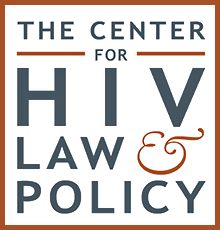Overview
There are no laws in Alaska specifically criminalising HIV ‘exposure’, non-disclosure, or transmission, and no known examples of general criminal laws being used to prosecute HIV status. However, people living with HIV who commit certain offences can be liable to sentence enhancements based upon their HIV status.
The law provides that during sentencing for specific sexual offences, the court may impose aggravated penalties on people living with HIV whereby the offence involved ‘penetration’ or ‘exposed’ the complainant to ‘a risk or a fear’ of transmission. The law does not elaborate on the conditions necessary for such a risk or fear of transmission to be found, and there is no requirement for that risk or fear to be well-founded based on scientific evidence. The law also broadly defines ‘penetration’ to include oral sex and penetration by objects. Furthermore, there is no requirement for intent or transmission, and the presence of condoms or a suppressed viral load appears not to impact liability.
Health laws in Alaska also permit officials to attain a court order to quarantine and isolate people if deemed necessary to prevent the spread of contagious diseases. As part of this process health records can be disclosed. Knowing violation of such orders is a class B misdemeanour, while intentional violation is a class A misdemeanour, punishable by up to 90 days’ and one year imprisonment respectively.
For a detailed analysis of HIV criminalisation in Alaska, as well as all other US states, see the Center for HIV Law and Policy report, HIV Criminalisation in the United States: a Sourcebook on State and Federal HIV Criminal Law and Practice.
Laws
Alaska Statutes § 12.55.155
Factors in aggravation and mitigation
(…)
(c) The following factors shall be considered by the sentencing court if proven in accordance with this section, and may allow imposition of a sentence above the presumptive range set out in AS 12.55.125:
(…)
(33) the offense was a felony specified in AS 11.41.410 – 11.41.455, the defendant had been previously diagnosed as having or having tested positive for HIV or AIDS, and the offense either (A) involved penetration, or (B) exposed the victim to a risk or a fear that the offense could result in the transmission of HIV or AIDS; in this paragraph, “HIV” and “AIDS” have the meanings given in AS 18.15.310;
Further resources
Not all laws used to prosecute people living with HIV in this state are included on this page. For a comprehensive overview and analysis of HIV-related criminal and similar laws and policies, visit The Center for HIV Law and Policy
